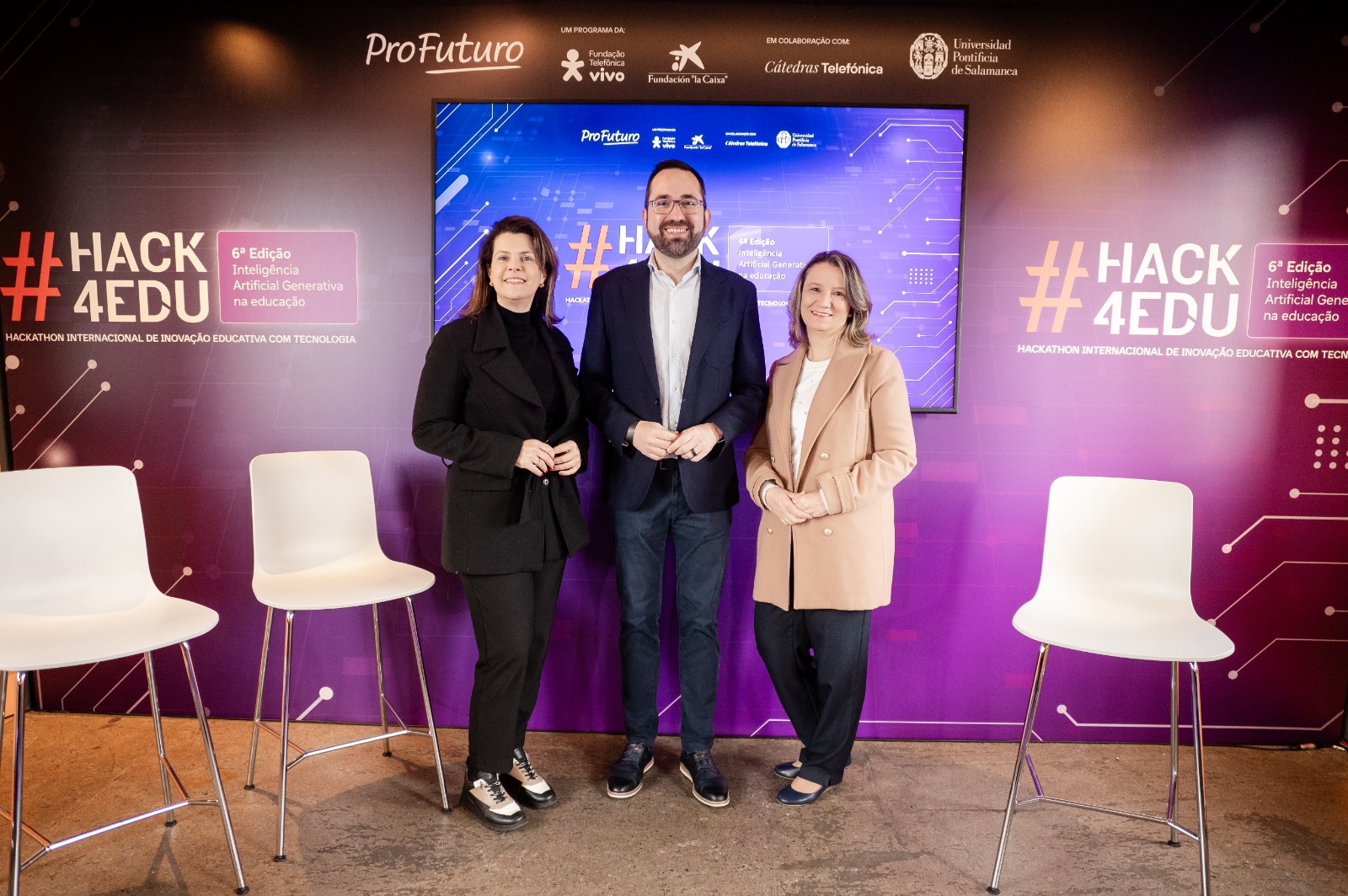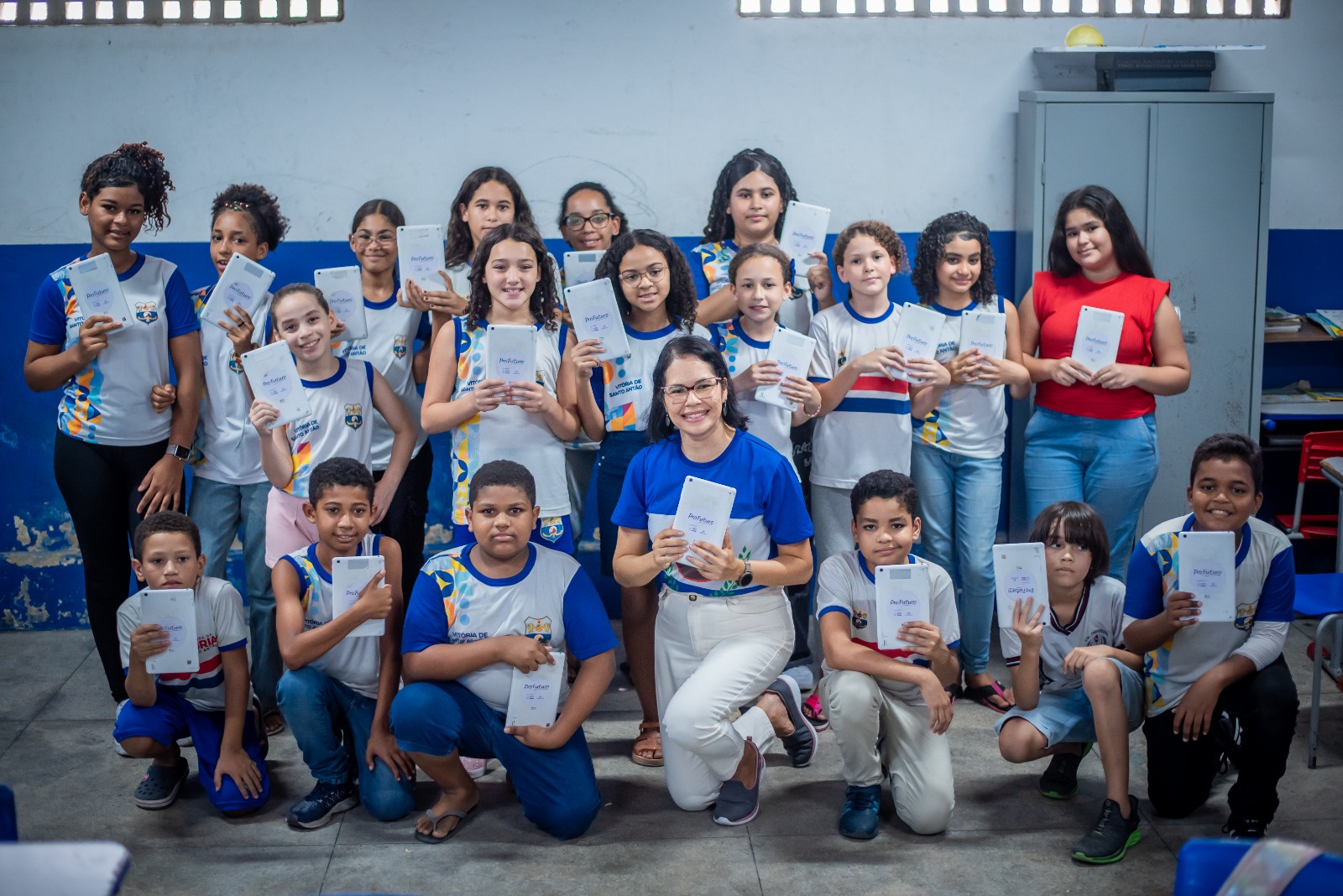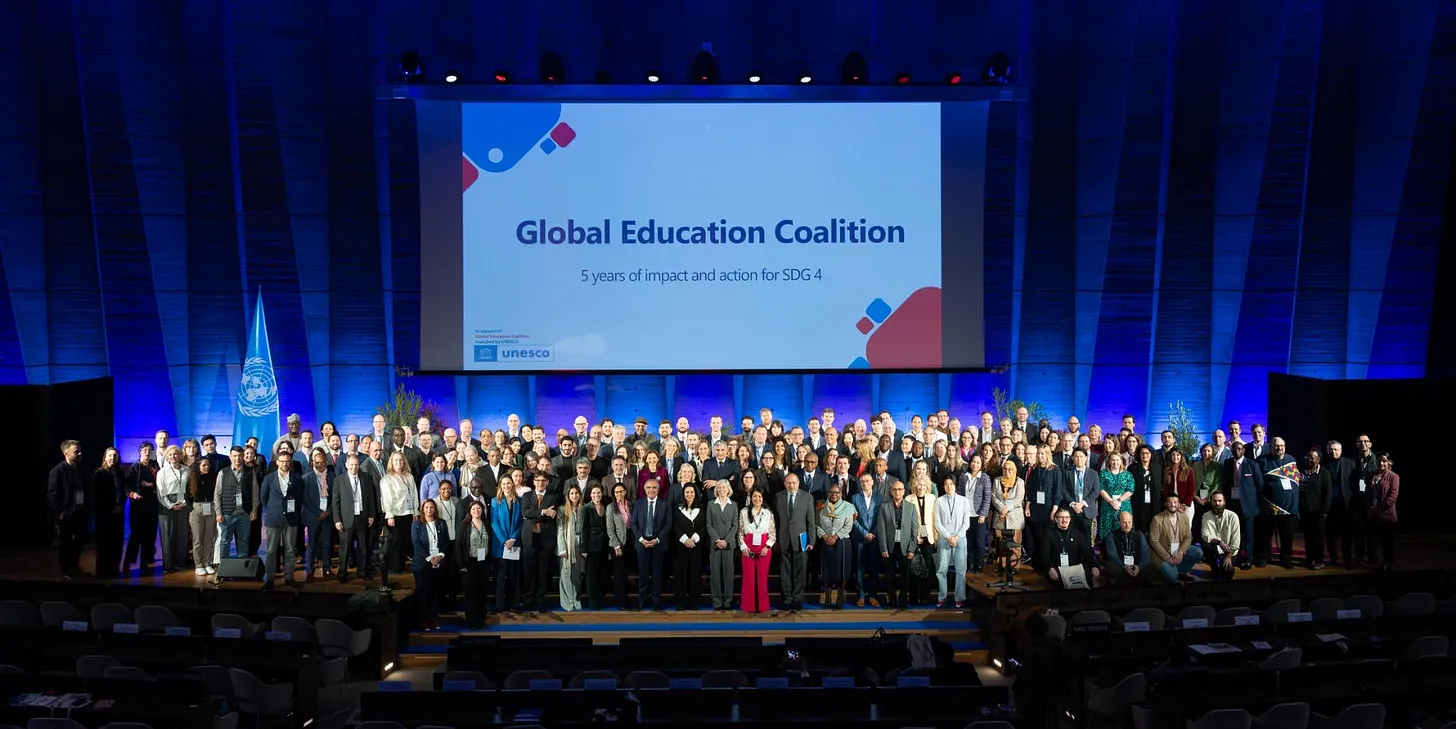Brazil hosted the presentation of the 6th edition of #hack4edu ProFuturo, the largest educational hackathon dedicated to the search for educational solutions with social impact through artificial intelligence and digital education. The official presentation of this sixth edition took place on 14 August at Campus 42 Brazil, in Sao Paulo, and was broadcast live via streaming for the entire international community.
The 2025 edition of #hack4edu will take place, in hybrid format, between 27 and 29 October 2025. Behind the initiative, which seeks to propose and resolve technological challenges related to the challenges posed by digital education, is ProFuturo, the programme of educational innovation with
technology promoted by Fundación Telefónica and the “la Caixa” Foundation, the Pontifical University of Salamanca (UPSA) and the Telefónica Chairs Network.
This hackathon, in addition to encouraging international collaboration, also seeks to promote hands-on learning and real-time problem solving, two key skills in 21st century education. With a focus on inclusion and equity, hack4edu aims to make a lasting impact on disadvantaged communities by providing technology solutions that are scalable and sustainable in these environments. This not only fosters the professional development of the participants, but also strengthens the cooperation networks between
educational and technological institutions.
hack4edu 2025 Awards
The #hack4edu participants are eligible for a total of 7 prizes, distributed in three main categories:
The Telefónica ProFuturo-UPSA Chair awards three prizes in the Innovative category: €1,500, €1,000, and €700 to the three best projects presented in this category. Three other prizes of €1,500, €1,200 and €700 respectively will also be awarded in the Senior category to the most outstanding projects of all the
senior candidates. As a novelty in this 6th edition, the Chair incorporates the Social Impact Award, which will recognise with €700 the best project that responds to a real educational challenge and demonstrates a high potential for transformation in vulnerable environments, especially valuing its inclusive, sustainable, scalable approach and the ethical and responsible use of artificial intelligence.
In addition, the organisation will award each site a special prize consisting of the publication of a research article in Springer, focusing on the projects addressed by each university. These papers will be compiled in a joint journal with the research presented by all participating sites. The launch event for these publications will be held in 2026 in a hybrid format from the Pontifical University of Salamanca.
In the fifth edition, #hack4edu broke its historical record with more than 630 hackers from 28 universities from 12 countries (Spain, Mexico, Venezuela, Brazil, Panama, Portugal, Uruguay, Colombia, Italy, Ecuador, Venezuela and Peru), working for 72 hours to solve 72 technological challenges related to
digital education in vulnerable environments.
In this 6th Edition #hack4edu it is expected that the solutions developed during the hackathon will not only address immediate problems, but also provide innovative tools that can be applied in the long term to improve the quality of education and reduce the digital divide and be the basis for the creation of projects with a high potential for social impact.






